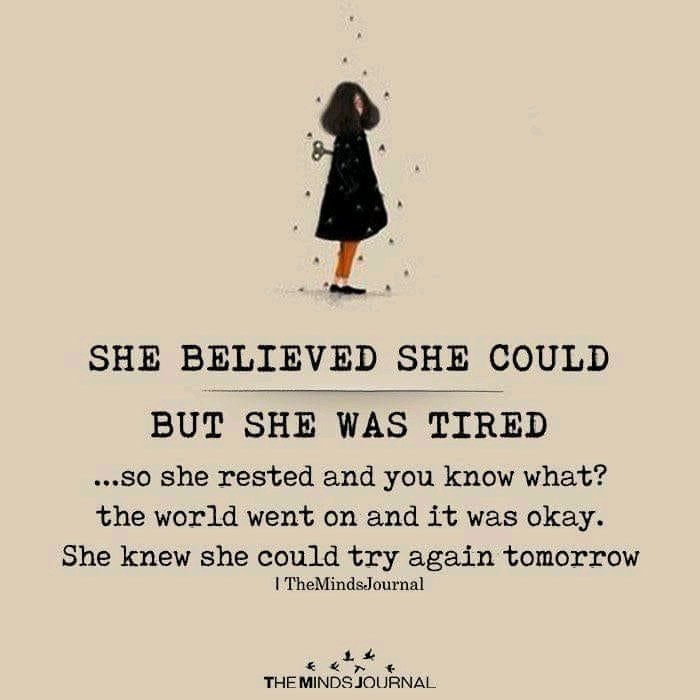I have written lots of posts on this blog about being brave and saying yes to opportunities. For once I’m going to write about something that for me requires even more courage, and that is saying no. It’s not that I don’t stand by those previous posts, saying yes is incredibly important. The thing is we all need to know why we are saying yes (or no) and to make sure that we are choosing our responses for the right reasons. Neither response should be driven by fear. There are times that for our own health and wellbeing we need to know when to choose our responses in a way that isn’t about career progression or opportunities, and we need to acknowledge that that saying no is also OK.
I’m a FOMO (fear of missing out) addict. I always want to be engaged, I want to both support and be seen to do so. I’ve worked so hard to get into the room that I live in some level of fear about not being in it. I worry that if I leave the room I fought to get in, not only will I be forgotten, but I will be barred from re-entry.

Over the last year a number of things have happened which have forced me to put this fear into context. FOMO is a fear of missing out on the possible, but by not being present for my life I’ve been missing out on the reality of my life that is happening every day. Recent events have prompted me to send emails resigning from a couple of things. I thought it would feel awful (it might still at some point in the future) but it didn’t, it felt great. Not because I am not heart broken to step away from those roles but because of the removal of the weight of those responsibilities that I had not realised I was carrying with me.
I feel like not only am I happy that I took the plunge but in fact I want to Marie Kondo my diary i.e. look at each item/commitment and say ‘does this bring me joy?’. If the answer is no then I need to follow up with asking myself honestly ‘why am I doing it?’. Obviously there are many things in our day to day working lives that just need to happen, but I think you would also be amazed at how many of those things that we feel obligated to do are actually just a routine or something that we are doing because we tell ourselves we should. It is these things we need to interrogate ourselves over and ask what it is that they are giving us: joy, experience, contacts? Are they still giving those things to us or are we attached to the memory/habit. Are we just scared to face up to what it would mean to move on?

Reasons to regularly review
What this current experience has shown me is that I don’t review my working life. The last couple of weeks have taught me that I should. I’ve spent some time thinking about it and the thought that has struck me (and you probably all knew this already – I’m often behind) is that you have to let go of the things that no longer serve you to make room for things that will let you continue to grow. I’ve not been letting go of things. Partly because I’ve finally reached the goal I was desperate to achieve in my working life and to be frank I’m so happy about that I’m still scared someone will take it away from me. I’m so used to having to tick so many boxes, often driven by the check list of others, that I’ve stopped reflecting on what was on the list for me.
If you, like me, have fallen into the habit of just taking on more, of just carrying on without reviewing your why, this is my plea for you to take a moment to see whether this is something you need to change. We should take a moment to put a review date in our diaries – I’m aiming for once every 6 months – to go through my lists of committees and responsibilities to see whether they are still a good fit for me and for those I’m working with. After all, it’s not just about my needs but also about making sure that I still offer what was required.
Carve out time to maximise impact
For me its not just a review of task, it’s also a review of mindset that is required. It’s very easy to become a human ‘doing’ and not a human ‘being’. Due to the pandemic I feel I’ve got into the habit of being in responsive mode. Constantly responding to changing information, changing guidance and the hundreds of daily emails. Don’t get me wrong, this is where I think many of us needed to be for the last couple of years, but we need to break ourselves of this habit. It’s nigh on impossible to be strategic in responsive mode. It is also not good for our own well being – at least it’s not for mine. I know get stressed and twitchy if I don’t access emails on the weekend. I worry about being judged for not immediately responding to every demand. The problem is that after the last 2 years I am broken and I can’t maintain it. Not just that but whilst I’ve been taking the time to reflect I’m pretty sure that it’s not where I do my best work. Responsive mode is fine when in crisis. Crisis is time consuming however and leads to focus on specific issues. To work on how to improve services and identify where we can do better requires us to take the time to step back, calmly reflect and then make plans. Switching from responsive to strategic mode is therefore important not just for me as an individual but is also key to doing a better job for patients.

Interrogate your reasons for saying yes
Not only am I a FOMO addict but I’m also a people pleaser. I feel the need to get feedback from others in order to feel like I succeed (I have another post coming on this). This can be an effective driver but when it takes over it can become a really destructive trait. You do not need to say yes to everything in order to ‘show up’. You don’t need to work 12 hour days ever day in order to be successful, in order to be enough. In fact by working those hours and becoming so focussed on the minutiae you may actually be performing less well than if you did your 9 – 5 and had adequate time off to reflect and recuperate.
These are my reasons for over committing but your may be very different. All of the different drivers we have are both good and bad, it all depends on how they are balanced. In times of stress it can become difficult to find that balance – and we have all been mighty stressed over the last 2 years. Now is a good time to look at ourselves and our decisions to make deliberate and mindful choices moving forward. Our judgement of worth needs to be internal not external if we’re to get out of this loop.

Know your worth
Self worth is a tricky thing. As I said above I’m a people pleaser, my self worth is often therefore derived from pleasing others. It is also linked to success, and like many in my field I define that success linked to outputs – presentations, guidelines, grant funding, papers published. Like many others I have lived, breathed, and focussed on pandemic management for the last 2 years. Therefore my sense of self has become distorted and my self worth has become even more focussed on work.
The thing is there is way more to me than my job. I have passions and interests both linked to work (like writing and The Nosocomial Project) and with my family. It is my family that have paid the price for the shift in how I behave and determine my value, and it is my family that now need to be my focus in order re-establish the balance I need to move forward. As teams, as managers and supervisors we need to support each other in shifting mindsets post this unusual period, and remind them that it’s OK to leave on time, to have weekends and eat lunch. It is OK to be the fullest version of yourself.
Give yourself permission to say no

So moving forward I am going to give myself permission to not just review options and step away from projects, but also to say no to new ones. If I lose traction, if I lose opportunities because I say no on occasion and if I’m not ‘always on’ then that is a price that I have determined I’m willing to pay. Those people who know me and have supported me will not disappear overnight just because I take more time to focus my energies on being the best person I can be.
Opening doors for others
I’m also not going to feel guilty about stepping back. This feeling of guilt has been difficult to manage but it’s not well founded. By stepping back from positions I’ve done for a while I’m opening up progression windows for others to make connections and gain experience in exactly the same that I did. By learning to say ‘no but have you thought about’ I am making opportunities for others and hopefully lifting others up by putting their names forward. Realising this has been crucial to me not feeling guilty about saying no. My saying no means that others can say yes and that is nothing to feel guilty about.
Situations change and the thing that was right for you 2 years ago may not be right thing for you now and that’s ok. Fear and guilt shouldn’t prevent us from letting go of things in order to grow and learn. So as much as I’m an advocate of yes I am also learning to become more comfortable with no. Find your joy, say yes to putting yourself first and know that by doing so you will become even better tomorrow than you are today!
All opinions on this blog are my own

A really healthy and timely post! You do you!
LikeLike
omgosh, I’m so glad I found your blog! This completely resonates with me right now. In fact, I just published a similar, much simpler blog post about feeling guilty for taking a rest. It seems like I’m encountering a lot of the same sentiment recently. We must all be going through something.
I love the reminder that we’re human beings, not human doings. Also, setting a reminder to do a life review every 6 months sounds great!
A book I read recently mentioned a woman who goes through an annual review of her relationships to make sure the people in her life are supportive. She cuts ties with energy vampires, overly negative folks, and people who refuse to take responsibility for their lives. I’m not at that point, yet, but it sounds like a great way to keep your circle full of high vibes!
Anyway, great post! Thanks for sharing. I look forward to reading many more 😊
LikeLike